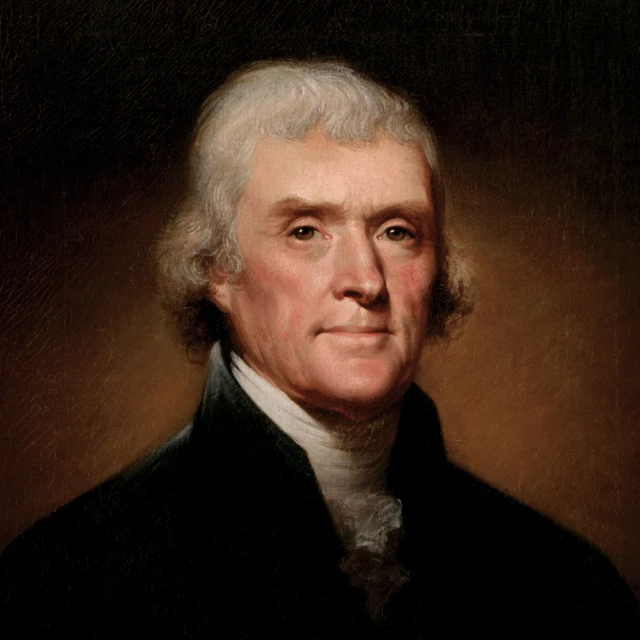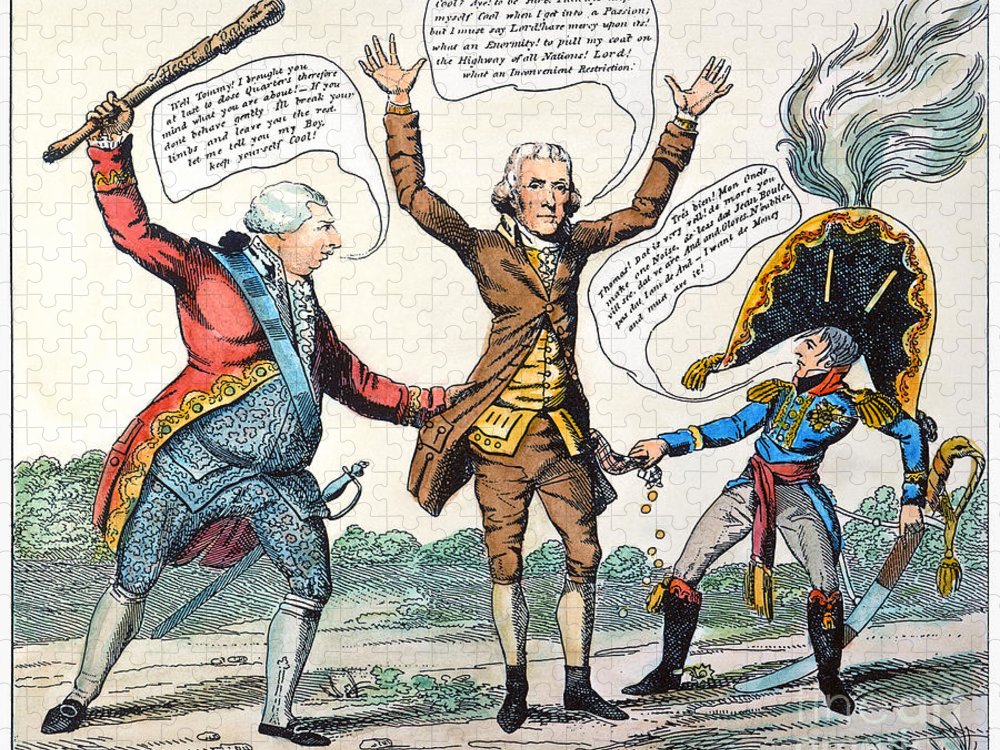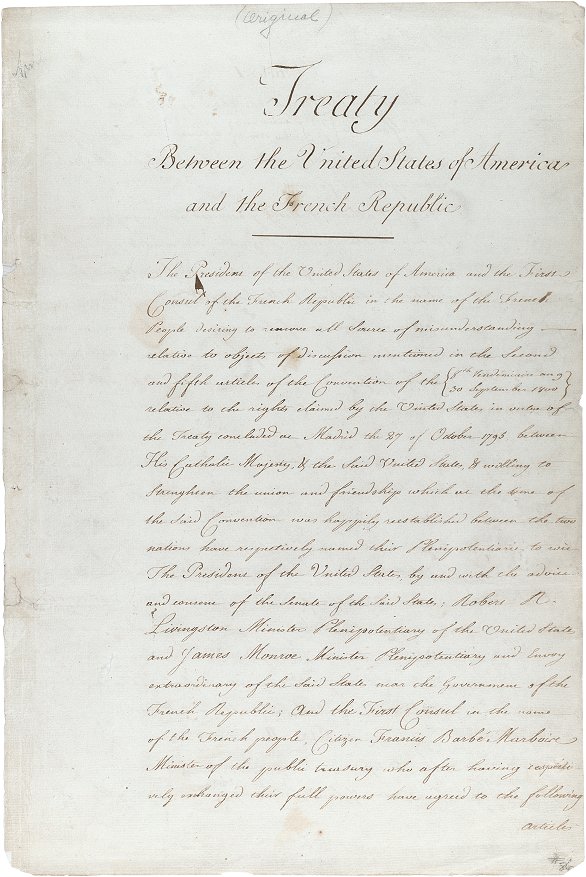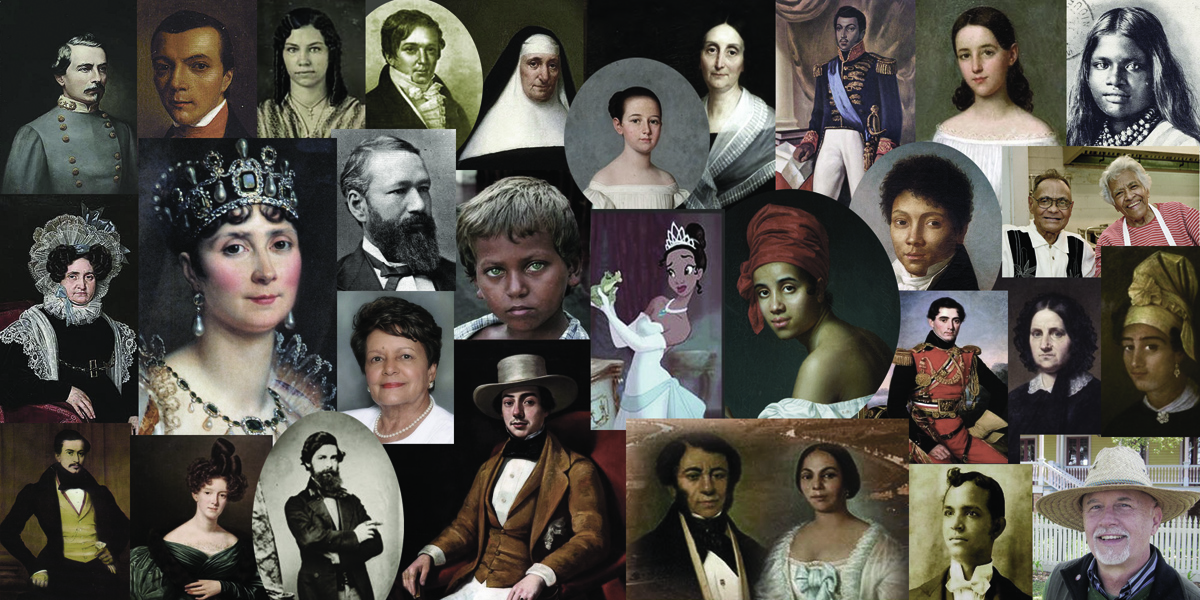
The Historic New Orleans Collection.
Debate
Jefferson was worried about the possible unconstitutionality of the purchase. He was a strict follower of the Constitution, which he believed was written to prohibit the government from violating individual rights. The purchase of land and that of granting citizenship to those living on that land were not part of the powers given to the President in the U. S. Constitution.
https://www.youtube.com/watch?v=sMh8RCqJf9U

Portrait of Thomas Jefferson by Rembrandt Peale....
Not all members of Congress approved of the purchase; seven senators opposed the deal of the century. Many Federalists objected to Jefferson's exercise of executive authority in the absence of any specific constitutional authorization.
"Whatever Congress shall think it necessary to do, should be done with as little debate as possible particularly as respect to the constitutionaldifficulty"
~ Thomas Jefferson to Wilson Cary Nicholas [Senator] 7 September 1803

"The incorporation of a foreign nation into the union, so far from tending to preserve the union, is a direct inrod upon it. It destroys the perfect union contemplated between the original parties, by interposing an alien and stranger to share the powers of government with the."
~ Representative Robert Griswold, 1803 Libray of Congress
Spain was outraged by the purchase. The Spanish Minister begged Jefferson and Madison not to send the treaty for ratification because the Treaty of San Ildefonso prohibited the secession to any other country but France. By violating the contract, Spain felt the treaty was void. Diplomatic negotiations continued for another nine years, after which Spain ceded Florida to the United States.
https://www.youtube.com/watch?v=TVoFn8w9aHU
Jefferson urged Congress to ratify the Louisiana Purchase as quickly as possible. He feared Napoleon would change his mind on the purchase or that Spain would intervene as Spain still owned most of Florida, and New Orleans contained many Spanish citizens. The two most pressing articles in the treaty that were heavily debated were Article II and IV.
"In the cession made by the preceding article are included the adjacent Islands belonging to Louisiana all public lots and Squares, vacant lands and all public buildings, fortifications, barracks and other edifices which are not private property.--"
~ Article II

INational Archives and Records Administration..
The size of Louisiana was unclear. Western territories had never been explored, and Spain did not know where the Florida borders began or ended.

Laura Plantation: Louisiana's Creole Heritage Site.https://www.lauraplantation.com/.
The inhabitants of the ceded territory shall be incorporated in the Union of the United States and admitted as soon as possible according to the principles of the federal Constitution to the enjoyment of all these rights, advantages and immunities of citizens of the United States, and in the meantime they shall be maintained and protected in the free enjoyment of their liberty, property and the Religion which they profess"
~ Article III
Louisiana was a hodgepodge of ethnic people including slaves and Native Americans. Article III emphasized all inhabitants -- meaning that slaves and native peoples were to be given all the privileges of citizenship. Congress debated the issue of slavery once more, and it was decided that an imaginary line would separate free slaves from slaves states.